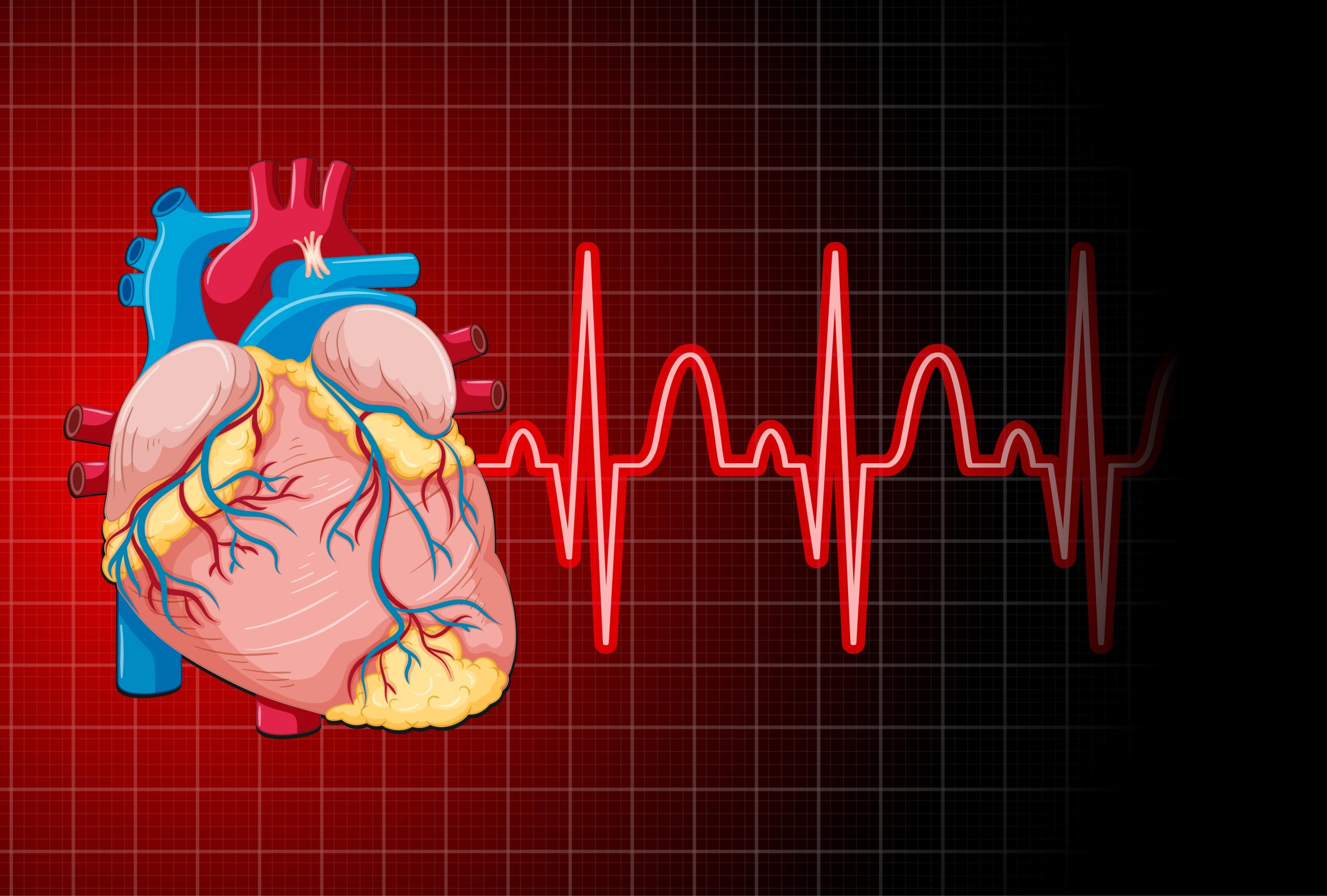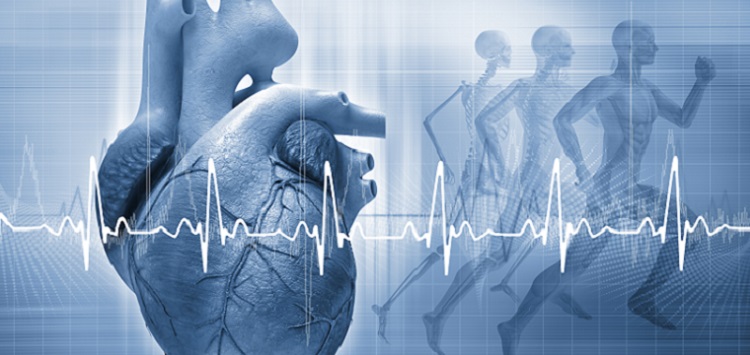The ultimate heart health checklist from Cardiology Jupiter
The ultimate heart health checklist from Cardiology Jupiter
Blog Article
Comprehending the Value of Cardiology in Modern Health Care Solutions
Cardiology plays an essential role in modern-day healthcare, specifically as heart problem continues to be the leading source of mortality worldwide. Advancements in diagnostics and therapy have transformed patient treatment, enabling earlier interventions and improved outcomes. Furthermore, the shift towards preventative cardiology encourages individuals to manage their wellness proactively. As technology remains to evolve, the combination of ingenious options may better redefine cardiology's effect on public wellness, triggering a more detailed assessment of arising trends and their ramifications.
The Frequency of Cardiovascular Disease and Its Influence On Public Health And Wellness
Heart condition stays the leading reason of death globally, its impact prolongs far beyond individual clients to affect public health and wellness systems and economies. The high frequency of heart problem puts a substantial stress on medical care resources, demanding enhanced financing for therapy, recovery, and avoidance programs. Public health efforts need to attend to danger aspects such as weight problems, cigarette smoking, and sedentary way of livings, which add significantly to the increasing incidence of heart conditions.Moreover, the economic problem linked with heart condition is immense, encompassing not just direct clinical costs yet also indirect expenditures associated with lost efficiency and early death. Communities deal with difficulties in handling these prices, often resulting in variations in health care accessibility and end results. As the populace ages and lifestyle-related threats remain to escalate, the urgency for effective cardiology interventions becomes critical. Dealing with heart illness is not only a matter of specific wellness yet likewise a vital public health and wellness concern.
Advancements in Cardiac Diagnostics and Imaging Techniques
Current innovations in heart diagnostics and imaging methods have revolutionized the area of cardiology, improving the capability to discover and keep track of cardiovascular disease. Methods such as cardiac MRI, CT angiography, and echocardiography have actually ended up being progressively sophisticated, giving in-depth pictures of cardiac frameworks and functions. These methods enable the early recognition of conditions like coronary artery disease, cardiac arrest, and valvular disorders.Moreover, developments in non-invasive diagnostics, such as wearable technology and remote surveillance devices, have actually equipped patients and doctor. These devices assist in real-time tracking of heart rhythms and various other necessary signs, bring about timely interventions. Additionally, expert system is being incorporated into imaging evaluation, enhancing accuracy and efficiency in diagnosis.
Technologies in Therapy Choices for Heart Issues
Recent innovations in cardiology have caused significant advancements in therapy options for heart disease. These consist of sophisticated medical techniques that improve step-by-step outcomes and emerging medicines that supply new opportunities for treatment. As the area develops, these advancements play a vital function in enhancing person care and outcomes.
Advanced Surgical Techniques
Advancements in medical techniques have transformed the landscape of cardiology, using brand-new wish for patients with heart disease. Minimally invasive treatments, such as catheter-based treatments, have actually greatly reduced healing times and healthcare facility keeps. Strategies like robotic-assisted surgery enhance precision, allowing cosmetic surgeons to navigate complicated anatomical structures with higher accuracy. Moreover, improvements in imaging innovation assist in real-time visualization throughout treatments, boosting end results. Transcatheter aortic valve replacement (TAVR) exemplifies a breakthrough in dealing with aortic constriction, making it possible for shutoff replacement without open-heart surgery. Additionally, hybrid approaches that incorporate medical and catheter-based techniques offer tailored remedies for numerous cardiac issues. These advanced medical methods not only enhance person security however also increase treatment options, emphasizing the essential function of development in modern cardiology techniques.
Emerging Medications and Treatments
As the landscape of cardiology proceeds to develop, arising therapies and drugs play a crucial function in enhancing treatment options for heart disease. Technologies such as novel anticoagulants and progressed lipid-lowering agents have actually transformed the administration of heart diseases, substantially lowering person morbidity and death. In addition, the growth of genetics therapies and regenerative medicine supplies encouraging opportunities for treating problems previously considered irreparable. Professional tests are constantly disclosing the effectiveness of these treatments, pushing the boundaries of typical treatments. The assimilation of digital health innovations promotes personalized medicine, enabling for customized therapy plans based on genetic and way of living variables. Collectively, these developments highlight the vibrant nature of cardiology, boosting client results and redefining criteria of treatment in modern-day healthcare.
The Role of Preventive Cardiology in Client Care
Precautionary cardiology plays a vital duty in person treatment by concentrating on the recognition of threat variables that add to cardiovascular disease. With way of life adjustment methods and very early discovery methods, health care suppliers can effectively lower the occurrence of cardio occasions - Cardiologist near me. This aggressive technique not just enhances client outcomes however likewise promotes long-term health
Threat Variable Recognition
While heart diseases remain a leading source of morbidity and mortality worldwide, reliable danger variable recognition works as a foundation of preventive cardiology. Recognizing danger elements such as hypertension, hyperlipidemia, diabetes mellitus, and household history is important for very early intervention. Medical care experts utilize different screening methods to review these aspects, permitting customized preventive procedures. Additionally, recognizing a person's way of life selections, such as cigarette smoking and physical lack of exercise, even more educates risk evaluations. This comprehensive evaluation makes it possible for clinicians to establish personalized care strategies intended at mitigating risks. By focusing on risk variable identification, health care systems can boost patient results and lower the overall concern of heart diseases, eventually adding to improved public health strategies and source appropriation.
Lifestyle Adjustment Strategies
A plethora of researches highlights the crucial role of lifestyle modification techniques in reducing heart disease risk. These techniques include nutritional adjustments, increased physical task, cigarette smoking cessation, and weight management. By embracing a heart-healthy diet regimen rich in fruits, vegetables, whole grains, and lean proteins, individuals can lower cholesterol levels and high blood pressure. Regular physical activity enhances the heart and boosts total cardio wellness. In addition, stopping cigarette smoking substantially lowers the danger of heart disease and improves healing rates for those with status quo. Weight management better adds to cardio wellness by minimizing various other threat variables such as diabetes mellitus and high blood pressure. Applying these lifestyle transforms not only advertises specific wellness yet additionally works as a keystone of preventative cardiology in client treatment.
Early Detection Techniques
Lifestyle modifications greatly add to minimizing cardio illness risks, however they are most efficient when coupled with early detection methods. Preventive cardiology stresses the value of identifying prospective heart problems prior to they intensify right into major conditions. Methods such as blood pressure tracking, cholesterol screening, and advanced imaging modern technologies like echocardiograms play essential duties in evaluating cardio health. Biomarkers and genetic screening additionally boost the accuracy of very early detection, permitting customized preventative strategies. Normal heart threat assessments equip health my explanation care companies to step in proactively, potentially protecting against cardiovascular disease and strokes (Cardiology). By incorporating these early detection approaches into regular treatment, patients can profit from prompt way of living treatments and targeted therapies, eventually boosting and enhancing results quality of life
Integrating Modern Technology Into Cardiology Practices
As developments in modern technology proceed to reshape various areas, the assimilation of ingenious devices and systems into cardiology methods has actually come to be vital for boosting patient treatment and end results. Telemedicine systems allow cardiologists to check people remotely, improving access to care while reducing the burden on health care facilities. Wearable gadgets, such as smartwatches, allow continuous heart rate monitoring, alerting both medical professionals and clients to possible concerns in real-time. Furthermore, man-made intelligence (AI) is being utilized to evaluate vast quantities of heart information, helping in early medical diagnosis and customized therapy strategies. Advanced imaging methods, including 3D echocardiography, enhance visualization of heart structures, causing more exact treatments. Electronic health and wellness documents (EHRs) improve client info management, making certain that cardiologists have instant accessibility to vital information. With each other, these technological developments are transforming cardiology, advertising positive management and boosted health and wellness outcomes for people with cardio conditions.
The Value of Person Education and Involvement
Patient education and engagement play a crucial role in the monitoring of cardiovascular health. By furnishing individuals with understanding concerning their conditions, therapy choices, and way of living modifications, doctor equip individuals to take an energetic role in their care. This proactive strategy can bring about enhanced adherence to prescribed medicines, nutritional modifications, and workout regimens, ultimately lowering the danger of complications.Engagement also click to investigate fosters a strong patient-provider partnership, urging open interaction and trust. When individuals feel notified and entailed, they are more probable to voice concerns and ask questions, which can cause much better clinical results. In addition, educational sources, such as workshops or digital platforms, can enhance understanding and promote self-management techniques. On the whole, focusing on patient education and engagement is you could try these out essential for enhancing cardiovascular health, improving quality of life, and reducing healthcare costs connected with heart diseases.
Future Fads in Cardiology and Their Possible Effect

Frequently Asked Inquiries
What Way Of Living Modifications Can Reduce Cardiovascular Disease Threat?
The present question addresses way of living modifications that can significantly reduce heart problem risk. Cardiology Jupiter. Adopting a well balanced diet plan, taking part in normal exercise, preserving a healthy weight, managing stress and anxiety, and preventing tobacco can significantly improve cardio health
Just How Can I Acknowledge Very Early Indicators of Heart Issues?
Recognizing very early signs of heart issues involves tracking symptoms such as breast discomfort, shortness of breath, exhaustion, and uneven heartbeat. Prompt awareness of these indications can prompt needed clinical assessment and treatment for better results.
What Are the Distinctions Between Cardiologists and Heart Surgeons?
The distinctions between cardiologists and cardiac doctors hinge on their functions; cardiologists largely take care of and diagnose heart disease via non-invasive methods, while cardiac specialists execute procedures to remedy architectural heart issues. Each plays an important, unique duty.

Exactly how Frequently Should I Obtain My Heart Wellness Checked?
The frequency of heart checkup differs based on individual threat elements. Generally, grownups ought to undergo analyses every one to 2 years, while those with status quo might require even more regular assessments as encouraged by healthcare specialists.
What Function Does Genes Play in Cardiovascular Disease Risk?
Genes greatly affects heart disease threat, with familial patterns showing inherited problems. Specific genes can incline individuals to high blood pressure, cholesterol issues, and various other cardio issues, highlighting the significance of genetic screening in evaluating heart health and wellness. Heart condition stays the leading reason of death internationally, its influence extends far past individual clients to influence public health systems and economic climates. Public health efforts have to address danger aspects such as obesity, cigarette smoking, and inactive way of livings, which contribute considerably to the climbing incidence of heart conditions.Moreover, the economic problem linked with heart disease is enormous, including not just straight medical costs however likewise indirect expenditures connected to shed productivity and premature death. Preventive cardiology plays a vital function in person treatment by concentrating on the recognition of risk factors that contribute to heart disease. Synthetic intelligence (AI) and device understanding are enhancing diagnostics and person surveillance, making it possible for very early detection of heart conditions. The distinctions in between cardiologists and heart surgeons lie in their roles; cardiologists mainly identify and manage heart conditions via non-invasive approaches, while heart doctors perform surgical treatments to deal with architectural heart problems.
Report this page